
The Second World War saw grand military strategy play out on the largest scale ever seen, stretching across most of the globe. Shaping this complex strategic situation were what historian Phillips O’Brien calls “The Five”: Winston Churchill, Adolf Hitler, Joseph Stalin, Benito Mussolini and Franklin D Roosevelt.
In The Strategists, O’Brien rejects the prevailing view among his contemporaries to argue that Second World War strategy was individualistic, shaped by the idiosyncrasies of these individuals. Laying out each leader’s experience of the First World War, the interwar period and their ascendency to power, O’Brien paints a vivid picture of how their wartime character and decision-making was formed.
O’Brien spoke with History of War to discuss each of The Five’s background and character, and how that translated into the way they led their nation’s grand strategy. He then considers how the Allied ‘Big Three’ (Roosevelt, Churchill and Stalin) began to butt heads as the war came to an end and the post-war world began to take shape. He also shares his thoughts on how the Russo-Ukraine War shows that flawed individuals can still hijack grand strategy.
How do you compare and contrast each of The Five’s upbringings, as well as their participation (or not) in the First World War?
The Five come in two categories. First, you can call them the aristocrats – Churchill and Roosevelt – who came from very privileged backgrounds. People sometimes say Churchill didn’t have much money, but his family had enormous social capital. Roosevelt was very much the same way. He came from an elite northeast family, raised in a life of great wealth. What it gave them was confidence that the others gained through war experience.
この記事は History of War の Issue 137 版に掲載されています。
7 日間の Magzter GOLD 無料トライアルを開始して、何千もの厳選されたプレミアム ストーリー、9,000 以上の雑誌や新聞にアクセスしてください。
すでに購読者です ? サインイン
この記事は History of War の Issue 137 版に掲載されています。
7 日間の Magzter GOLD 無料トライアルを開始して、何千もの厳選されたプレミアム ストーリー、9,000 以上の雑誌や新聞にアクセスしてください。
すでに購読者です? サインイン
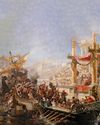
NAUMACHIA TRUTH BEHIND ROME'S GLADIATOR SEA BATTLES
In their quest for evermore novel and bloody entertainment, the Romans staged enormous naval fights on artificial lakes
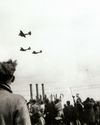
OPERATION MANNA
In late April 1945, millions of Dutch civilians were starving as Nazi retribution for the failed Operation Market Garden cut off supplies. eet as In response, Allied bombers launched a risky mission to air-drop food
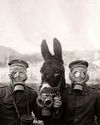
GASSING HITLER
Just a month before the end of WWI, the future Fuhrer was blinded by a British shell and invalided away from the frontline. Over a century later, has the artillery brigade that launched the fateful attack finally been identified?
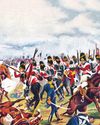
SALAMANCA
After years of largely defensive campaigning, Lieutenant General Arthur Wellesley went on the offensive against a French invasion of Andalusia

HUMBERT 'ROCKY'VERSACE
Early in the Vietnam War, a dedicated US Special Forces officer defied his merciless Viet Cong captors and inspired his fellow POWs to survive
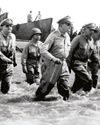
LEYTE 1944 SINKING THE RISING SUN
One of the more difficult island campaigns in WWII's Pacific Theatre saw a brutal months-long fight that exhausted Japan’s military strength

MAD DAWN
How technology transformed strategic thinking and military doctrine from the Cold War to the current day
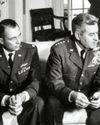
BRUSHES WITH ARMAGEDDON
Humanity came close to self-annihilation with the Cuban Missile Crisis, Broken Arrows’ and other nuclear near misses
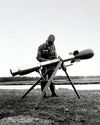
THE DEADLY RACE
How the road to peace led to an arms contest between the USA and USSR, with prototypes, proliferation and the world’s biggest bomb

THE MANHATTAN PROJECT
Einstein, Oppenheimer and the race to beat Hitler to the bomb. How a science project in the desert helped win a war